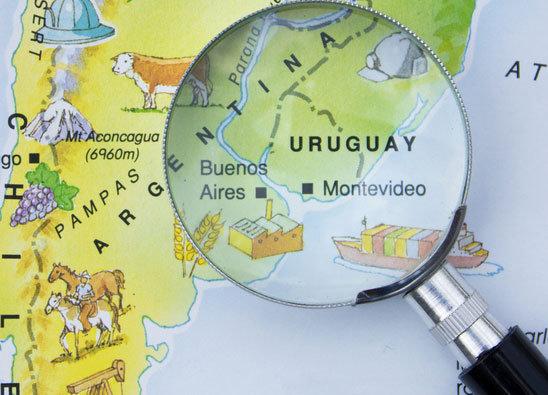Uruguay was a pioneer in the advancement of rights due to its democratic consolidation, with its high levels of social welfare comparable to those in Europe, and the promotion of cutting-edge legislation such as women’s suffrage and voluntary divorce. Also notable is its tradition of political dialogue, the existence of mechanisms for direct democracy, and its commitment to equity and human development, which led it to be known as “the Switzerland of the Americas.”
1830 First country in the region with a stable Republican Constitution for almost a century.
1876 Pioneer in the region and second in the world to establish compulsory, free, and secular education.
1892 First public kindergarten in Latin America.
1907 First country in South America to completely abolish the death penalty.
1907 First country in Latin America to legislate divorce.
1915 First country in the world to legislate an 8-hour workday.
1916 First champion of the America’s Cup
1924 First World Cup Champion of a tournament organized by FIFA.
1927 Recorded the first female vote in South America.
1930 First country in the world to host and win the FIFA World Cup. 1950 Uruguay won the World Cup in Brazil in a historic event known as the “Maracanazo”
1960 First country to successfully implement the pacemaker in the Americas, becoming the second country in the world to do so.
2007 First country in the world to implement one laptop per child nationwide.
Relaxed and safe quality of life: Uruguay is choose for its political and economic stability, making it an “eye of calm” in Latin America with a strong democracy and low corruption.
The country offers a high quality of life, a warm and safe environment with a tolerant, friendly population, a stunning, diverse natural beauty from beaches to rolling countryside and a general sense of security compared to several countries in the region.
Uruguay is also a foodie paradise with an emerging wine scene and offers significant opportunities for those looking to live, work, or invest.
Good healthcare system and private options: There is public coverage and private (mutual) networks with acceptable standards for residents and expats.
Affordable public education: Public education, including the university, has a relatively good reputation in the region.
Nature and coast: outdoor life: beaches (Punta del Este, Montevideo, Piriápolis and others), parks, and ranches; ideal if you value open spaces and outdoor activities.
Culture and urban tranquility: Montevideo combines cultural offerings (music, markets, restaurants) with quiet neighborhoods and a waterfront ideal for walking or biking.
Relatively accessible residency process: There are clear paths to obtaining residency (temporary → permanent) and eventually citizenship if you meet the requirements.
Moderate cost of living (depending on style and city): generally cheaper than major cities in the US or Europe; Montevideo and coastal areas are more expensive than the interior.
Considerations/Potential Drawbacks
Limited job market: Well-paying opportunities depend on the sector; if you’re looking for local work, research by sector.
Costs in premium areas: Neighborhoods like Pocitos, Punta Carretas, or Punta del Este raise the cost of housing and services.
Dependence on imports: Some imported goods are expensive due to taxes, which affects electronics, cars, and certain foods.
Temperate climate: Cool winters and moderate summers; it’s not tropical if that’s what you’re looking for.
Bottom Line
If you value stability, decent public and private healthcare, a quieter life near the sea, and reasonable residency procedures, Uruguay is a very attractive option. If a large job market or low prices across all categories are your priority, it’s a good idea to compare cities and sectors before moving.

